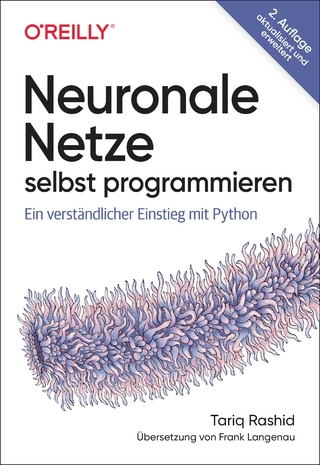
Social Network Analysis
SAGE Publications Inc (Verlag)
9781483325217 (ISBN)
Social Network Analysis: Methods and Examples prepares social science students to conduct their own social network analysis (SNA) by covering basic methodological tools along with illustrative examples from various fields. This innovative book takes a conceptual rather than a mathematical approach as it discusses the connection between what SNA methods have to offer and how those methods are used in research design, data collection, and analysis. Four substantive applications chapters provide examples from politics, work and organizations, mental and physical health, and crime and terrorism studies.
Song Yang (Ph.D., University of Minnesota, 2002) is a professor of sociology and criminology at the University of Arkansas. His teaching and research areas are social network analysis, including business, economic, and organizational networks, work and organization studies, and social statistics. He published many articles and chapters, with the most recent ones on Journal of Business Research and Nonprofit and Voluntary Sector Quarterly. He has written several books, including Social Network Analysis (2008, with David Knoke), The Invisible Hands of Political Parties in Presidential Elections: Party Activists and Political Aggregation from 2004 to 2012 (2013, with Andrew Dowdle, Scott Limbocker, Patrick Stewart, and Karen Sebold), and Social Network Analysis: Methods and Examples (2016, with Franziska Keller, and Lu Zheng). Franziska Barbara Keller has received her PhD degree from New York University’s Department of Politics, and is currently Assistant Professor at the Division of Social Science at the Hong Kong University of Science and Technology. Her work uses Social Network Analysis to examine informal politics in authoritarian regimes. Her research has been supported by organizations such as the Chiang Ching-Kuo Foundation, and has received the John Sprague Award by the Political Network Section of the American Political Science Association. Her most recent publication, “Moving Beyond Factions: Using Social Network Analysis to Uncover Patronage Networks Among Chinese Elites”, has appeared in the Journal of East Asian Studies. Lu Zheng is Associate Professor of Sociology in Tsinghua University, China and Adjunct Professor of Sociology in Texas A&M University, USA. His research projects focus on corporate social responsibility (CSR), social governance, and China’s ongoing urbanization process. His publications appear in Social Forces, British Journal of Sociology, Social Science Research, and China Quarterly, etc. His paper on listed firms in China’s stock market won the Best Paper Award from the International Association of Chinese Management Research (IACMR) Biennial Conference in 2012. His most recent coauthored book is Data you need to know about China: Research Report of China Household Finance Survey (2014).
Preface
About the Authors
Chapter 1: Basics of Social Network Analysis
1.1 Introduction
1.2 The Social Network and How to Represent It
1.3 Types of Networks
1.4 Network Parts and Levels of Analysis
1.5 Networks as Social Structure and Institution
1.6 Theoretical Assumptions
1.7 Causality in Social Network Studies
1.8 A Brief History of Social Network Analysis
Chapter 2: Data Collection
2.1 Boundary Specification
2.2 Data Collection Process
2.3 Informant Bias and Issue of Reliability
2.4 Archival Data
Chapter 3: Descriptive Methods in Social Network Analysis
3.1 Graph and Matrix–Social Network Representation
3.2 Density
3.3 Centrality, Centralization, and Prestige
3.4 Cliques
3.5 Multidimensional Scaling (MDS) and Dendogram
3.6 Structural Equivalence
3.7 Two-Mode Networks and Bipartite Matrix
Chapter 4: Inferential Methods in Social Network Analysis
4.1 Permutation and QAP (Quadratic Assignment Procedure) Correlation
4.2 P* or Exponential Random Graph Model (ERGM)
Chapter 5: Social Network Analysis of Work and Organizations
5.1 Personal Connections and Labor Market Processes
5.2 Intra-Organizational Networks
5.3 Inter-Organizational Relations
Chapter 6: Social Network Analysis in Crime and Terrorism
6.1 Personal Networks, Delinquency, and Crime
6.2 Neighborhood Networks
6.3 Criminal Networks
6.4 Analyzing Social Networks of Terror
Chapter 7: Social Network Analysis in Emotional and Physical Health
7.1 Social Network Analysis and Emotional Health
7.2 Social Network Analysis in Physical Fitness
7.3 Social Network Analysis and Illicit Drug Use
7.4 Social Network Analysis and Sexually Transmitted Disease
Chapter 8: Political Networks
8.1 American Politics
8.2 Networks in International Relations
Glossary
References
Index
| Verlagsort | Thousand Oaks |
|---|---|
| Sprache | englisch |
| Maße | 187 x 231 mm |
| Gewicht | 470 g |
| Themenwelt | Informatik ► Datenbanken ► Data Warehouse / Data Mining |
| Sozialwissenschaften ► Soziologie ► Empirische Sozialforschung | |
| ISBN-13 | 9781483325217 / 9781483325217 |
| Zustand | Neuware |
| Informationen gemäß Produktsicherheitsverordnung (GPSR) | |
| Haben Sie eine Frage zum Produkt? |
aus dem Bereich


